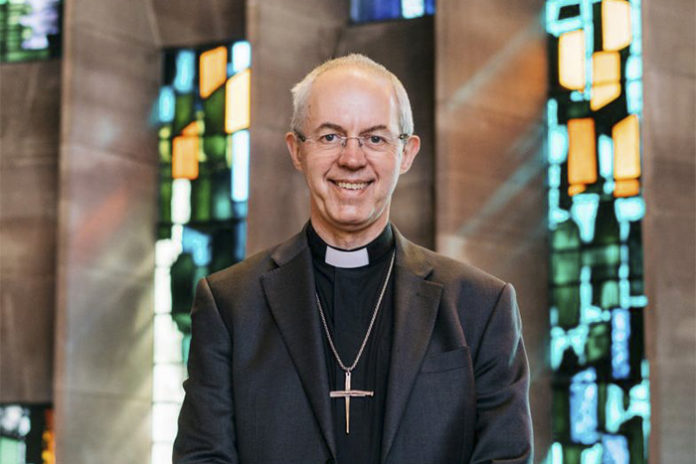The Church of England has today declared civil partnerships between men and women are not as good as marriage.
ALSO READ:
Abandoned coffin triggers controversy
Aluta continua – Asiedu Nketia declares as anti-new voters register demo continues
Revealed: Suspect in Mankessim police murder case is owner of fuel station attacked by robbers
A statement issued by the House of Bishops today, led by the Archbishop of Canterbury, the Most Reverend Justin Welby, addressed the changes in marriage law for the first time.
The pastoral statement added that marriage, ‘continues to provide the best context for the raising of children.’
The bishops defined marriage as ‘a faithful, committed, permanent and legally sanctioned relationship between a man and a woman making a public commitment to each other,’ and ‘central to the stability and health of human society.’
In December, heterosexual couple Rebecca Steinfeld and Charles Keidan became one of the first couples to tie the knot in a ceremony after winning a Supreme Court case to change the law.
The couple, who had campaigned for mixed-sex civil partnerships, registered their ‘more modern’ partnership at Kensington and Chelsea Register.
The change in the law allows couples up and down the country to enter into civil partnerships rather than a marriage following a Supreme Court legal victory in 2018.
The couple, who met in 2010 and have two children, said marriage ‘treated women as property’.
Rules were changed to extend civil partnerships – available to same-sex couples since 2005 – to everyone.
The statement published by the House of Bishops, which includes all 42 of the most senior diocesan bishops, added: ‘It would not be right to produce an authorised public liturgy in connection with the registering of civil partnerships.
‘With opposite sex civil partnerships, and with those for same sex couples, the Church’s teaching on sexual ethics remains unchanged. For Christians, marriage – that is the lifelong union between a man and a woman, contracted with the making of vows – remains the proper context for sexual activity.’
They added: ‘Because of the ambiguity about the place of sexual activity within civil partnerships of both sorts, and the church’s teaching that marriage between a man and a woman is the proper context for sexual intercourse, we do not believe that it is possible for the church unconditionally to accept civil partnerships as unequivocally reflecting the teaching of the church.’
But the leaders of the Church said churchgoers with civil partnerships should be treated ‘sensitively and pastorally’.

